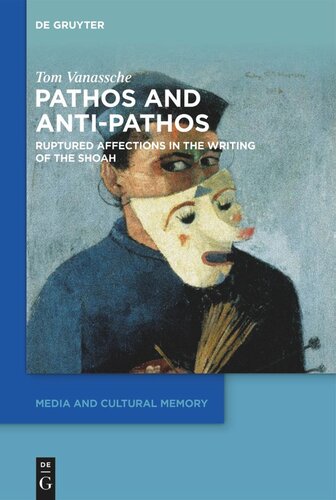

Most ebook files are in PDF format, so you can easily read them using various software such as Foxit Reader or directly on the Google Chrome browser.
Some ebook files are released by publishers in other formats such as .awz, .mobi, .epub, .fb2, etc. You may need to install specific software to read these formats on mobile/PC, such as Calibre.
Please read the tutorial at this link: https://ebookbell.com/faq
We offer FREE conversion to the popular formats you request; however, this may take some time. Therefore, right after payment, please email us, and we will try to provide the service as quickly as possible.
For some exceptional file formats or broken links (if any), please refrain from opening any disputes. Instead, email us first, and we will try to assist within a maximum of 6 hours.
EbookBell Team

5.0
30 reviewsScholarship often presumes that texts written about the Shoah, either by those directly involved in it or those writing its history, must always bear witness to the affective aftermath of the event, the lingering emotional effects of suffering. Drawing on the History of Emotions and on trauma theory, this monograph offers a critical study of the ambivalent attributions and expressions of emotion and “emotionlessness” in the literature and historiography of the Shoah. It addresses three phenomena: the metaphorical discourses by which emotionality and the purported lack thereof are attributed to victims and to perpetrators; the rhetoric of affective self-control and of affective distancing in fiction, testimony and historiography; and the poetics of empathy and the status of emotionality in discourses on the Shoah. Through a close analysis of a broad corpus centred around the work of W. G. Sebald, Dieter Schlesak, Ruth Klüger and Raul Hilberg, the book critically contextualises emotionality and its attributions in the post-war era, when a scepticism of pathos coincided with demands for factual rigidity. Ultimately, it invites the reader to reflect on their own affective stances towards history and its commemoration in the twenty-first century.